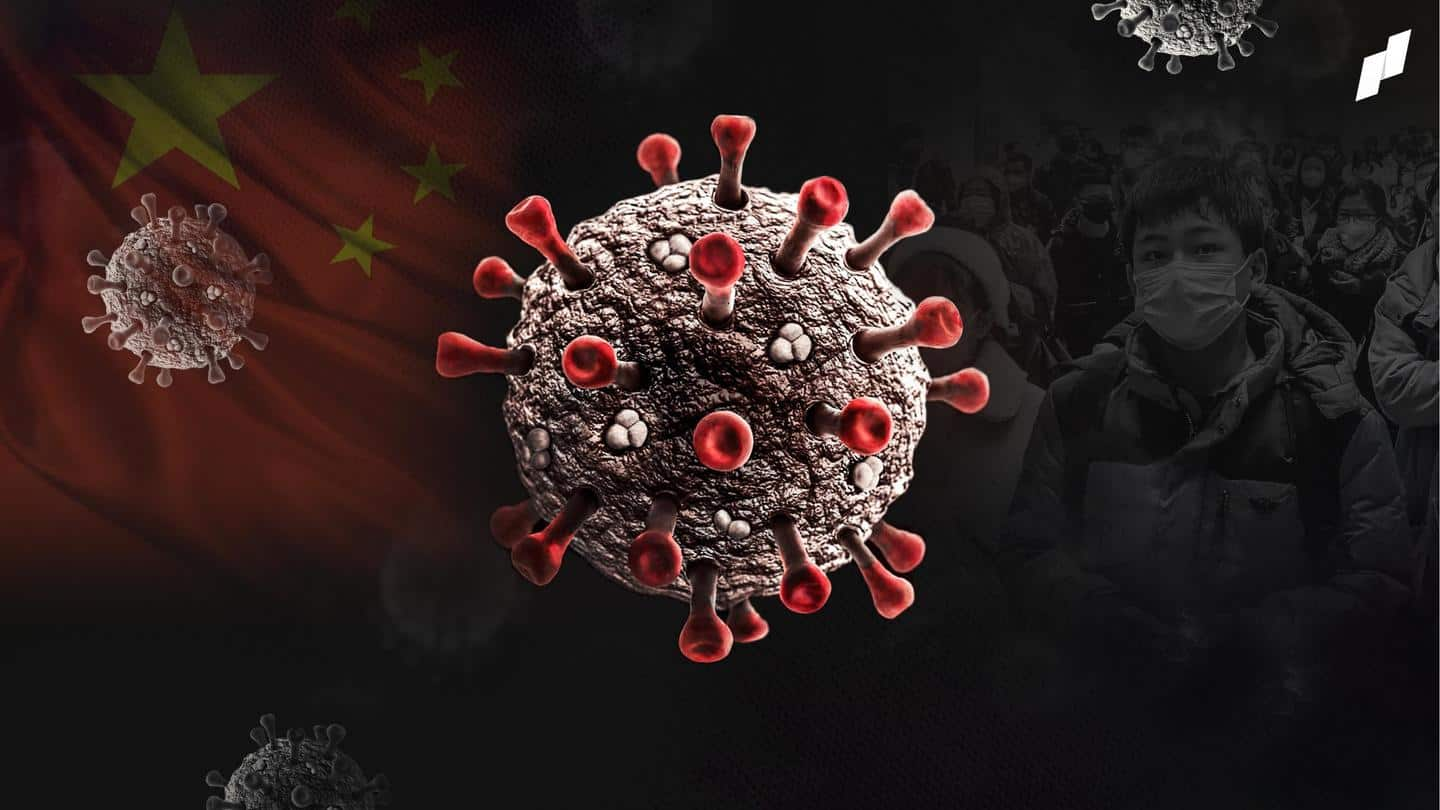
China: PCR test purchases increased before COVID-19 was first confirmed
What's the story
A cyber security firm suggested that authorities in China alerted global agencies about COVID-19 much later than the emergence of the disease.
The Australian-US firm, Internet 2.0, reached the conclusions after analyzing purchases of polymerase chain reaction (PCR) testing equipment in the Hubei province, which is home to Wuhan, where the outbreak was first reported in late 2019.
Details
PCR test purchases rose in second half of 2019: Study
The study by Internet 2.0 analyzed purchases of PCR testing equipment in Hubei province.
It found that the purchases of PCR testing equipment shot upward in 2019, with most of the increase coming in the second half of the year.
Notably, PCR tests allow scientists to amplify DNA samples or other genetic material to test for infectious diseases.
Background
China alerted about new coronavirus in January 2020
The study suggests that COVID-19 emerged in China in the second half of 2019.
On December 31, 2019, the World Health Organization reported that its China Country Office was informed that cases of pneumonia from an unknown cause had been detected in the city.
However, Chinese authorities revealed the identification of a new type of coronavirus—now known as SARS-CoV-2—on January 7, 2020.
China
China dismisses findings; calls it dubious
However, China's Foreign Ministry disputed the findings, saying the report falls into the same category as other "dubious claims" about the origins of the coronavirus.
It said the findings are similar to the "so-called paper" that analyzed traffic volumes near several hospitals in Wuhan and searched for the keywords "cough" and "diarrhea" before concluding that the outbreak began in Wuhan in August 2019.
Quote
Virus traceability a serious scientific issue: China
Dismissing the findings, the Chinese Foreign Ministry said, "Virus traceability is a serious scientific issue that should be addressed by scientists." It also added, "China's anti-epidemic campaign is open to the world...the situation is clear...the facts are clear....and stand the test of time and history."
Internet 2.0
'China's reluctance to provide evidence pushed us for third-party data'
David Robinson, Internet 2.0's co-CEO, said the timing and the agencies behind the purchases support the idea that officials in Hubei province were investigating a new human disease throughout the second half of 2019.
However, Internet 2.0 maintained that the data doesn't support any COVID-19 origin conclusions.
It said China's reluctance to provide conclusive evidence pushed them to rely on third-party data points.
Methodology
What was the methodology of their study?
Robinson said Internet 2.0's report is based on purchasing data publicly available on Chinese government websites.
It collected 1,716 procurement contracts from 2007 to the end of 2019 and then spent months checking and analyzing the data.
While PCR-related purchases were relatively flat or went up or down slightly in most areas, the Hubei province witnessed a massive jump in purchases in 2019.
Information
PCR purchases nearly doubled in Hubei in 2019
Internet 2.0 found that the Hubei province witnessed an increase in spending on PCR equipment since 2014. But the jump was particularly big in 2019, at 67.36 million yuan from 36.7 million yuan the year before.
PCR purchase
Robinson highlighted three 'out of trend' PCR purchases in Hubei
Robinson highlighted three particular PCR purchases in Hubei that he described as "out of trend."
These include purchases made by China's People's Liberation Army Airborne Hospital in May 2019, Wuhan Hongshan District Center for Disease Control and Prevention in September 2019, and the Wuhan Institute of Virology (WIV) in November 2019.
Many suspect the virus leaked from a lab at the WIV.
Expert
Internet 2.0 report not enough to draw conclusions: Expert
Meanwhile, experts said that the Internet 2.0 report did not provide enough information to draw conclusions on the origins of COVID-19.
They said PCR testing—which has been in broad use for several decades—has been growing in popularity as it has become a standard method to test for pathogens.
Experts also argued that PCR is widely used in laboratories to test for many other pathogens.